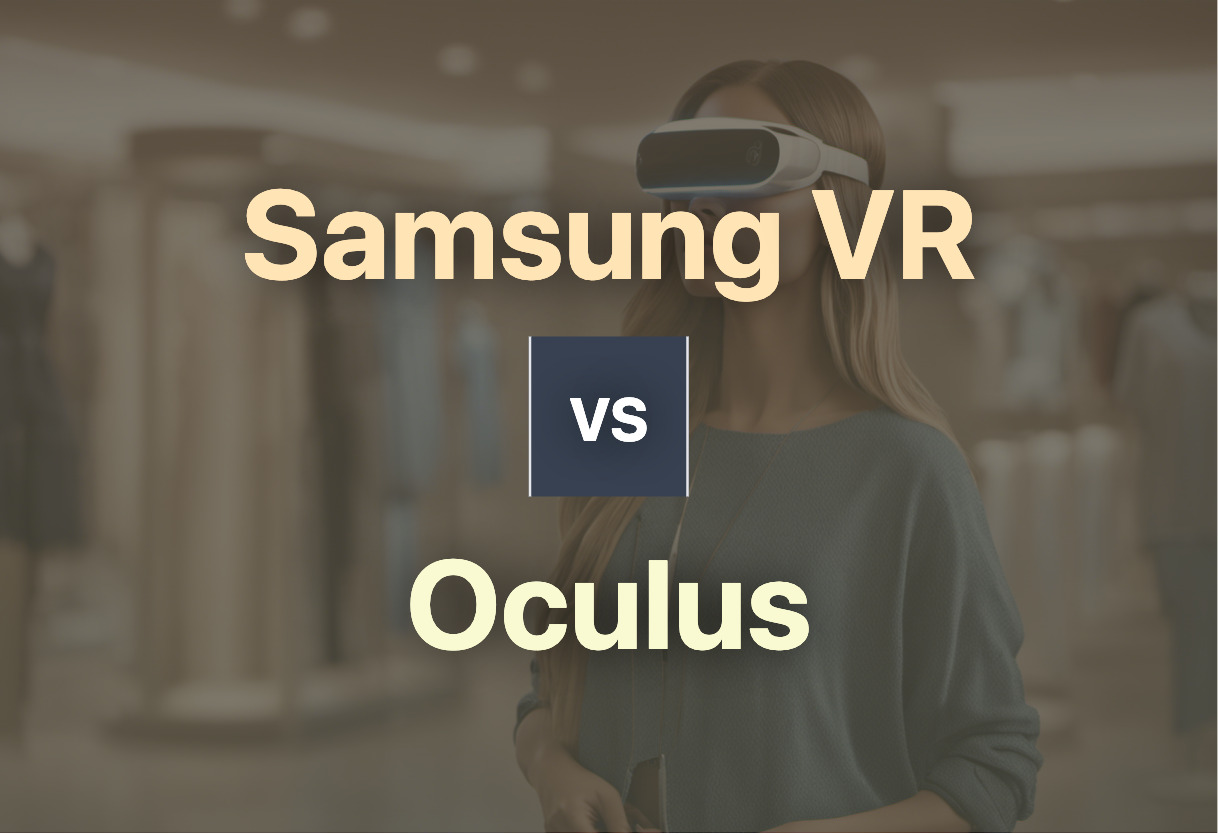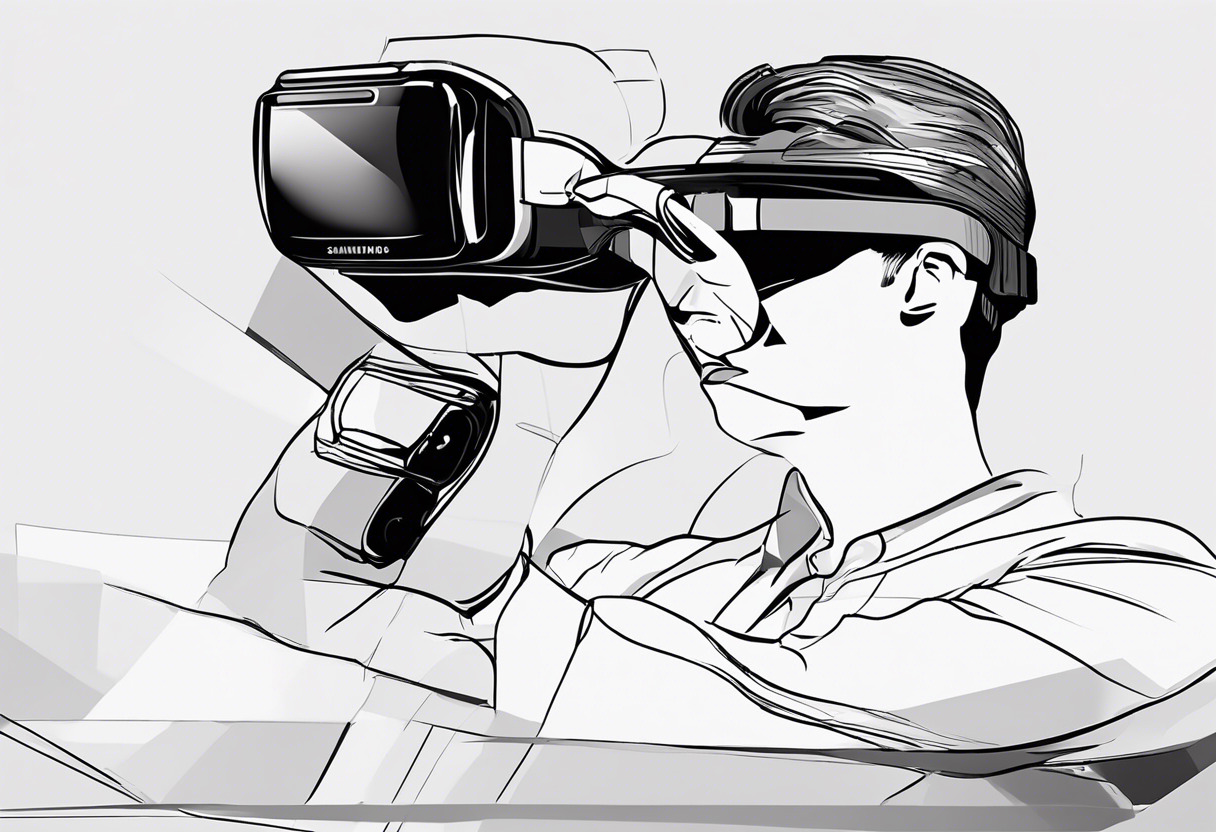For immersive VR experiences, Oculus Rift leads with high-end tech, but for mobile VR, Samsung Gear’s smartphone integration is unmatched. The choice: budget-oriented & mobile-friendly Samsung Gear VR vs high fidelity & PC-anchored Oculus Rift.

Key Differences Between Samsung VR and Oculus
- Samsung Gear VR leverages smartphone as display and processor, whereas Oculus Rift requires high-spec PC integration.
- Samsung Gear is budget-friendly and mobile, Oculus Rift provides high fidelity but limited mobility.
- Oculus offers a wide FOV of 90-110 degrees, surpassing Samsung Gear’s FOV.
- Oculus Rift line is discontinued as of 2021, whereas Samsung Gear VR technology is no longer being supported post September 2020.
| Comparison | Samsung Gear VR | Oculus Rift |
|---|---|---|
| Initial Release | November 27, 2015 | March 2013 (DK1) |
| Discontinued | September 30, 2020 | April 2021 (Rift S) |
| Core Technology | Smartphone as display & processor, IMU for rotational tracking | Standalone VR headset with geometric pre-distortion, stereoscopic FOV |
| Latest Device Resolution | Dependent on smartphone, optimised for QHD (2560×1440) | 1280×800 (Rift CV1) |
| Tracking Capabilities | IMU for rotational tracking | Absolute head orientation tracking with three-axis gyros, accelerometers and magnetometers |
| Software Platform | Oculus Home (discontinued) | Oculus Software Library |
| Partnerships | Collaboration with Oculus VR | Acquired by Facebook in 2014 |
| Hardware Evolution | Multiple versions for compatibility and redesign (SM-R320 – SM-R325) | Various prototypes, initial public release as Oculus Rift CV1, later replaced with Rift S |
What Is Samsung Gear VR and Who’s It For?
Born from a collaboration with Oculus VR, Samsung Gear VR is a virtual reality headset launched by Samsung Electronics. By integrating a smartphone as its display and processor for VR, it made premium virtual reality experiences accessible to the wider public. Initially released in November 2015, the Gear VR targeted tech enthusiasts and Samsung flagship users.
This device is an ideal VR gateway for Samsung smartphone users, as it supports multiple Samsung flagship models. However, it does not support Galaxy Note10 series onwards. Whether for gaming, simulations, or educational experiences, the content available via Oculus Home ensures diverse usability.

Pros of Samsung Gear VR
- Multiple compatibility with Samsung flagship models
- Embedded IMU for rotational tracking
- Adjustable focus via a wheel, with integrated navigation controls
- High-res rendering on Note 4’s QHD display
Cons of Samsung Gear VR
- Discontinued on September 30, 2020
- Does not support Galaxy Note10 series onwards
- Content limited to Oculus Home
What Is Oculus Rift and Who’s It For?
Oculus Rift, developed by Oculus VR, is a line of virtual reality headsets that revolutionized the VR industry. Founded by Palmer Luckey, Oculus sought to create accessible, high-quality VR experiences. Oculus Rift caters to tech-savvy users seeking immersive gaming and VR experiences.
The first Oculus Rift prototype in 2011 incorporated groundbreaking technologies like geometric pre-distortion and a large stereoscopic field of view, setting a new standard in VR. Oculus Rift is perfect for gamers and virtual explorers, thanks to its compatibility with Oculus Quest.

Pros of Oculus Rift
- Accessible price for realistic VR experiences
- 90 degrees horizontal and 110 degrees vertical stereoscopic 3D view
- Significantly improved clarity with 1080p LCD panel in later prototypes
- Integration of three-axis gyros, accelerometers, and magnetometers for head orientation tracking
Cons of Oculus Rift
- Rift S, the final Oculus Rift product, was discontinued in April 2021
- Screen door effect is present, albeit reduced
- Requires specific hardware to run optimally
Samsung Gear VR vs Oculus Rift: Pricing
The following compares the pricing strategies of two behemoths in the VR territory.
Samsung Gear VR
Released in 2015 as a collaboration between Samsung and Oculus, the Gear VR leveraged the processing prowess of high-end Samsung smartphones. While the pricing specifics aren’t stipulated, it’s deducible that it offered a significant bargain by maximizing smartphone utilities, hence dropping down the ownership cost for those already possessing a compatible Samsung smartphone.
Oculus Rift
Debuted in 2013, Oculus Rift crafted a reputation for offering a realistic VR experience at a competitive cost. Continued iterations and evolving feature repertoire propagated its value proposition. Even though precise price points are not mentioned, its accessibility and novel technological integration paint a picture of judicious pricing.
The Final Verdict: Samsung VR vs Oculus
After in-depth analysis, we have come to a conclusion..
For VR Newcomers
If you are dipping your toes into the VR world for the first time, Samsung VRs easy integration with smartphones makes it an optimal choice for testing the virtual waters.

The Gaming Enthusiast
Oculus Rift offers animmersive and superior gaming experience. Its wide FOV and high resolution create visually striking scenes that captivate the player. Oculus is our recommendation for this audience.

Developers
For developers looking to experiment with VR, our suggestion inclines towards Oculus due to its robust software library and flexibility. Its open-source development platform offers immense room for innovation.

Samsung Flagship Users
If you are an avid user of Samsung flagship devices, excluding Galaxy Note10 series onwards, you will seamlessly enjoy the compatibility of Gear VR without needing additional hardware.

Budget-Conscious Users
The Samsung Gear VR offers users a cost-effective way to experiment with virtual reality, a clear winner for those on a budget.

In conclusion, Samsung VR proves to be beginner-friendly with its seamless integration with smartphones, while Oculus delivers a superior gaming experience and development flexibility. Choose according to your needs.
Tiffany Brise
Content writer @ Aircada, patiently awaiting a consumer AR headset that doesn’t suck.





